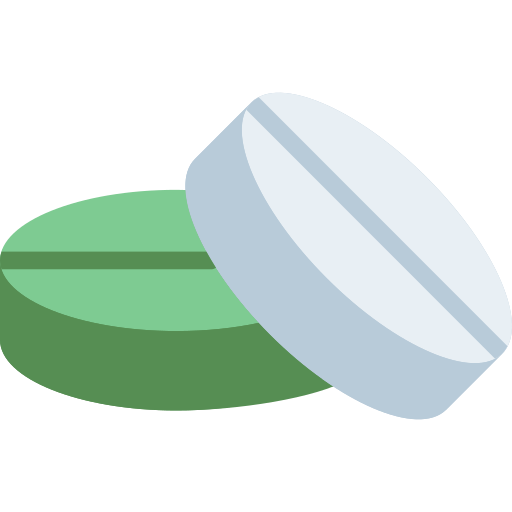
Product Details
Description
There are no precautions for timing in relation to food.
ketoconazole, itraconazole, erythromycin and grapefruit juice may inhibit its metabolism (increasing serum levels of mifepristone). Furthermore, rifampicin, dexamethasone, St John's Wort and certain anticonvulsants (phenytoin, phenobarbital, carbamazepine) may induce mifepristone metabolism (lowering serum levels of Mifepristone). Based on invitro inhibition information, co-administration of mifepristone may lead to an increase in serum levels of drugs that are CYP3A4 substrates. Limited evidence suggests that co-administration of NSAIDs on the day of prostaglandin administration does not adversely influence the effects of Mifepristone or the prostaglandin on cervical ripening or uterine contractility and does not reduce the clinical efficacy of medical termination of pregnancy.
Mifepristone must not be administered if there is doubt as to the existence or age of the pregnancy or if an extra-uterine pregnancy is suspected. An ultrasound scan and/or measurement of Beta-hCG must be performed before administration. For first trimester abortions, Mifepristone is contraindicated if the pregnancy is beyond 49 days of amenorrhoea when used with Misoprostol, or beyond 63 days of amenorrhoea when used with Gemeprost. Mifepristone should never be prescribed in patients with chronic adrenal failure, known allergy to Mifepristone or to any component of the product, severe asthma uncontrolled by corticosteroid therapy, porphyrias and renal failure, liver failure or malnutrition, or during breast feeding. Mifepristone is a lipophilic compound and may theoretically be excreted in the mother\'s breast milk, however no data is available.
It is very common for women to experience uterine contractions or cramping (10-45%) in the hours following prostaglandin intake. Bleeding increases with gestational age. Heavy bleeding occurs in about 5% of cases and from 0-1.4% may require haemostatic curettage. Uterine rupture, hypotension, skin rashes, urticaria, hot flashes and dizziness have been uncommonly reported.
Pregnancy: Mifepristone is indicated for use in the termination of pregnancy (through 49 days’ pregnancy) and has no other approved indication for use during pregnancy. Lactation: It is not known whether Mifepristone is excreted in human milk. Many hormones with a similar chemical structure, however, are excreted in breast milk. Since the effects of Mifepristone on infants are unknown, breast-feeding women should consult with their health care provider to decide if they should discard their breast milk for a few days following administration of the medications.
Mifepristone is available only in single dose packaging. Administration must be under the supervision of a qualified physician. There are no data on the safety and efficacy of Mifepristone in women with chronic medical conditions such as cardiovascular, hypertensive, hepatic, respiratory or renal disease; insulin-dependent diabetes mellitus; severe anemia or heavy smoking. Women who are more than 35 years of age and who also smoke 10 or more cigarettes per day should be treated with caution because such patients were generally excluded from clinical trials of Mifepristone. Although there is no clinical evidence, the effectiveness of Mifepristone may be lower if Misoprostol is administered more than two days after Mifepristone administration.
Use in children: Safety and effectiveness in pediatric patients have not been established.
Single doses of Mifepristone up to 2 gm caused no unwanted reaction. In the event of massive ingestion, signs of adrenal failure might occur. Acute intoxication may require admission to hospital and if relevant treatment with dexamethasone.
-
Support 24/7
Call us anytime -
100% Safety
Only secure payments